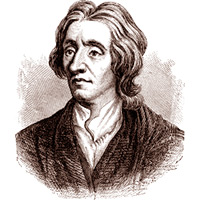The importance of being a sceptic
 We
have heard and read about a Swami in India who is supposed to have
performed miracles on more than one occasion. He had created gold
chains, rings and wristwatches for many unsuspecting devotees. Volumes
have been written about his miracles by medical men and scientists. He
is also supposed to have psychic and healing powers. We
have heard and read about a Swami in India who is supposed to have
performed miracles on more than one occasion. He had created gold
chains, rings and wristwatches for many unsuspecting devotees. Volumes
have been written about his miracles by medical men and scientists. He
is also supposed to have psychic and healing powers.
Once a small group of journalists who were impressed by the stories
written about him visited the Swami’s ashram and stayed there for a week
to witness his miracles. To their dismay, the Swami was in a wheelchair
apparently paralysed waist downwards. The journalists did not see any
miracles and their request to interview the Swami was turned down.
The world is full of such god-men and magicians. Most people believe
what others tell them. When you disagree with them or ask for evidence,
they get annoyed. Although most of us are gullible enough to believe
anything and everything without evidence, there are a few men and women
who are sceptical about claims made by god-men and psycho-kinetics who
move objects using their mind power. Most philosophers and rationalists
belong to this category.
Credible evidence
|

John Locke: The mind is a blank tablet, blank white paper, on
which experience writes. |
If you are a sceptic, you will demand clear, observable and credible
evidence before accepting any knowledge claim as true. The word
“scepticism” from the Greek “skeptesthai” (to consider or examine)
refers to both a school of philosophy and a general attitude.
In ancient Greece, a sceptic was a special kind of doubter who
withheld judgment for want of evidence. Sextus Empiricus even devised a
“sceptical grammar.” There are variations of scepticism from total to
temporary doubt for the purpose of analysis. The renowned philosopher
Rene Descartes called it “methodic doubt.”
We need not, however, demand evidence for all the claims people make.
If the issue is important, we have a right to ask for evidence.
Sometimes, we may be able to verify everything by ourselves. We may have
to depend on expert opinions. Who are the experts is another matter to
consider. When it comes to health foods, we invariably buy anything on
the recommendation of our neighbours. On the other hand, even doctors
and politicians make claims. All these issues involve knowledge claims.
In philosophy we call them epistemological issues. Thanks to Rene
Descartes, epistemology has become a branch of Western philosophy.
Empiricism
Epistemology gave rise to rationalism and empiricism. According to
rationalism, reason is the only means of gaining knowledge and logic is
the method of asking for reasons. Empiricism is the belief that all
knowledge is ultimately derived from the senses and that all ideas can
be traced to sense data. Empiricists believe that reason is unable to
provide knowledge of reality. Such knowledge can only be derived from
experience.
The earliest of the three British empiricists was John Locke
(1632-1704) who wrote, An Essay Concerning Human Understanding which
explained what empiricism is. According to Locke, all ideas originate in
sensation and reflection. Descartes, on the other hand, believed in a
special class of ideas known as a priori or innate ideas. They are
truths derived from observation or experience. For instance, every event
has a cause or all triangles contain 1800. Locke rejected the Cartesian
style speculation as “dangerous” and “useless.” While rationalists
compared the mind to a pantry well stocked with “innate ideas,” Locke
said the mind is an empty pantry waiting to be stocked by experience.
Modern philosophy
John Locke, considered to be the greatest British philosopher, has
left his signature on modern philosophy. His intent was to lay the
foundation of human knowledge on a sound, scientific footing. He read
Descartes’s Meditations with absorbing interest but rejected the
rationalist philosophy contained therein.
Does a falling tree make a sound when there is no one to hear it?
Locke said the falling tree creates vibrations in the air, but there is
no “sound,” since sound is not a “real” or primary quality. This view
leads to the metaphysical conclusion that without a perceiving mind,
there is no such thing in the world as colour or sound. But he said
there are such things as shape, extension and solidity, independently of
whether anyone perceives them or not.
On the role of philosopher Locke said, “A philosopher should be an
under-labourer, clearing the ground, removing rubbish. What is the
rubbish the philosopher removes? Rationalistic rubbish, of course, such
rubbish as Plato and St. Thomas Aquinas and Descartes wrote. But what is
the under-labourer clearing the ground for, since nothing is to be built
and there are no master builders? The empiricist has no answer to this
question except that it is desirable to recognise rubbish and to clear
it out.” |

